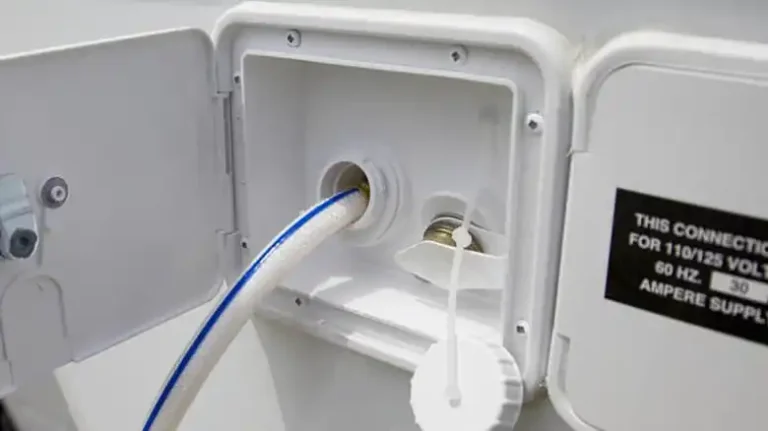Choosing the Right RV Water Heater Type: Tank vs. Tankless
Outfitting a recreational vehicle with the comforts of home is no small task. Finding and installing all the necessary appliances and accessories requires some difficult decisions. One key component that should not be overlooked is the critical hot water system. An RV water heater may seem simple on the surface, but choosing the optimal one for your needs deserves careful deliberation.
RV owners seeking a reliable source of hot water for washing, cleaning, and bathing face an elemental decision – whether to go with a conventional storage tank water heater or a modern tankless design. Both technologies have their merits when supplying vital aqua calor for traveling nomads. Determining if a tank or tankless heater is the best fit depends on a myriad of factors like hot water demand expectations, space constraints, upfront costs, fuel source availability, and ease of installation among other considerations in the comparison.
Here, I’ll talk about the intrinsic differences between traditional hot water holding tanks and advanced instant-heating tankless systems. What are the distinguishing features that set them apart? What are the pros and cons of each design for life on the road? Whether you seek top performance with unlimited output or maximum resilience off the grid, there are tradeoffs to weigh with each option. Use this comprehensive side-by-side analysis as a tool to decide whether a storage tank or tankless build best fulfills your mobile hot water aspirations.

What Is a Tank Water Heater?
Tank-style RV water heaters work much like traditional water heater tanks for homes. Cold water flows into a storage tank that has been pre-filled with water and heated to a set temperature by propane burners or heating elements. As hot water gets drawn out for use, the tank refills with cold water and reheats it. Tanks are available in different capacities, typically from 6-12 gallons for most RVs. Larger tanks require more energy to keep heated but provide more available hot water storage capacity.
What Is a Tankless Water Heater?
Tankless RV water heaters work differently, heating water directly on demand instead of storing any hot water reserve. When a hot water tap or appliance is activated, cold water travels through heating coils or chambers that rapidly heat it before sending it through your plumbing lines. Fuel for heating comes from propane, electricity, or diesel. Their unlimited on-demand capacity means you’ll never run out of hot water.
Tank vs Tankless Water Heaters: Ultimate Comparison
So should you choose a storage tank or tankless style RV water heater? There are several factors to weigh when deciding. Before getting into the details, here’s a quick comparison table to make things more convenient –
| Feature | Tank Water Heater | Tankless Water Heater |
| Design & Size | Larger, bulkier unit to allow for a water storage tank. Size ranges from 6-12 gallon tanks. | More compact box-style unit with an integrated heating system and no tank. Better for tight spaces. |
| Weight | 30-60 lbs or more with a tank full of water | Typically 20-35 lbs |
| Upfront Cost | $200-$400 on average | $400-$1200 on average |
| Hot Water Output | Limited capacity of storage tank (6-12 gallons). Good for moderate usage. | Unlimited hot water on demand. Better for low to moderate usage. |
| Fuel Source | Propane, electric, or combination. Electric slower recovery. | Propane, electric, diesel. Electric requires 50 amp service. |
| Efficiency | Standby heat losses from stored hot water. Less efficient. | Instant on-demand heating only. More energy efficient. |
| Temperature Control | Basic thermostats, less precise | Digital control panels, very precise |
| Reliability Without Power | Holds hot water for a while without fuel/electricity | Inoperable without a power source |
| Maintenance | Flush mineral buildup regularly | Less maintenance generally |
| Environmental Impact | Propane emits greenhouse gases | Electric with renewable sources is the most eco-friendly |
Design
Tank heaters consist of a metal (steel, aluminum) tank plus heating elements, lines, insulation, and an outer metal or plastic shell. Their size depends on tank capacity. Tankless heaters contain heating cores, fuel lines/elements, computerized controls, and a protective outer casing in a compact box. Tankless units take up less interior RV space.
Upfront Costs
Tank water heaters tend to be less expensive than tankless to purchase upfront. However, tankless models offer greater energy efficiency and lower operating costs over time for most people.
Hot Water Output
One advantage of tanks is their ability to store and provide a more substantial hot water capacity of around 6-12 gallons heated and ready to use. This makes them preferable for moderate to high hot water demand. Tankless heaters offer unlimited on-demand hot water, making them ideal for RVs with lower hot water needs.
Fuel Source
Tank water heaters allow dual fuel options including propane to heat water quicker, or more efficient electric heating elements. Tankless models work on propane, electricity, or diesel fuel in larger motorhomes. Electric tankless models require high amperage service (50+ amps).
Heat Efficiency
Tank heaters constantly reheating stored tank water are less efficient, losing some heat over time. Tankless models with on-demand heat exchangers waste less energy without constantly heating water.
Temperature Control
Most storage tank heaters have basic analog or digital temperature adjustment, while high-end electronic tankless models allow very precise temperature control.
Energy Efficiency
Heating elements in tank models must run regularly to keep water hot in the tank, while tankless systems only operate as needed. This gives tankless heaters greater overall energy efficiency in most cases.
Interior Space Requirements
Tank water heaters take up interior RV space for their water storage capacity, while tankless units fit in smaller spaces like cabinets. Going tankless can save limited storage in small RV layouts.
Installation
Tank heaters usually have simpler connections to power/fuel lines and water pipes. Tankless installations are more complex, sometimes requiring exhaust vents for combustion gases. This makes tanks an easier DIY project.
Reliability Without Power
If electricity or propane is cut off, tank heaters retain hot water reserves in the insulated tank while tankless models can’t heat water without constant power.
Maintenance
Tank heaters need regular draining/flushing to prevent scale and sediment buildup. Tankless heaters require less upkeep, but the mineral scale may need occasional descaling treatment depending on local water quality.
Environmental Impact
Propane tank heaters produce greenhouse gas emissions. Electric tankless models powered by renewable energy have the lowest environmental impact, depending on electricity sources.
Pros and Cons of Tank and Tankless RV Water Heater
When determining a better product between the two, it’s always better to have an idea about their pros and cons. Therefore, have a look at the pros and cons of both types of water heaters –
Tank Water Heater
Pros:
- Lower upfront cost
- Larger hot water capacity
- Easier to install
- Retains heat when power lost
Cons:
- Takes up interior space
- Regular maintenance to prevent scale
- Less energy efficient
- Limited by tank capacity
Tankless Water Heater
Pros:
- Unlimited hot water on demand
- Compact/saves interior space
- Very energy efficient
- Precise temperature control
Cons:
- No hot water without constant fuel/electricity
- Higher upfront cost
- More complex venting/installation
- May need occasional descaling
Choosing Between Tank and Tankless: What to Consider?
Choosing the right RV water heater mainly depends on weighing your needs. But still, to make things easier, here’s a suggestion.
Consider a storage-tank water heater if –
a) You need high-capacity hot water for frequent showers, washing dishes, etc
b) You value operational reliability off-grid without power
c) You want simpler installation and maintenance
Consider a tankless water heater if –
a) You want unlimited hot water on demand
b) Energy efficiency is a high-priority
c) You have limited interior space to forfeit
Also, consider available fuel options given energy availability expectations while traveling.
Top Tank and Tankless RV Water Heater Picks
Best Tank: Atwood 6 Gallon DSI Electric Ignition LP Gas/Electric Water Heater
Durable and reliable Atwood tank model, AMP draw optimized between AC and gas heating. Vented exhaust, electric ignition, integrated controls.
Best Midsize Tankless: Girard 2GWHAM Tankless Water Heater
Top choice for moderately sized RV hot water needs. On-demand hot water from this self-modulating propane unit with minimal power draw.
Best High-Capacity Tankless: Aquahot H600C Tankless RV Hot Water System
Heats hot water continuously on diesel fuel, and integrates heat exchangers for both hot water and interior heat. Ideal for luxury motorhomes.
Frequently Asked Questions and Answers – FAQs
Do I need a special water heater for cold-weather RVing?
Yes. Most RV water heaters aren’t designed to withstand freezing temperatures. Investing in a 4-season model with onboard heaters and freeze protection is crucial for extended cold-weather RV living.
Do RV tankless water heaters require a large generator?
Not necessarily. Some electricity-powered tankless heaters have high amperage electrical demands, requiring 50 amps service or a large generator if dry camping. Choose an LP gas-fired model under 18k BTUs to reduce electrical load.
Is it worth upgrading my existing RV water heater to tankless?
Possibly, for improved efficiency and capacity. However, tankless water heater retrofits require changes to plumbing and ventilation that can get complicated. Contact an RV technician regarding requirements and costs before undertaking a replacement.







